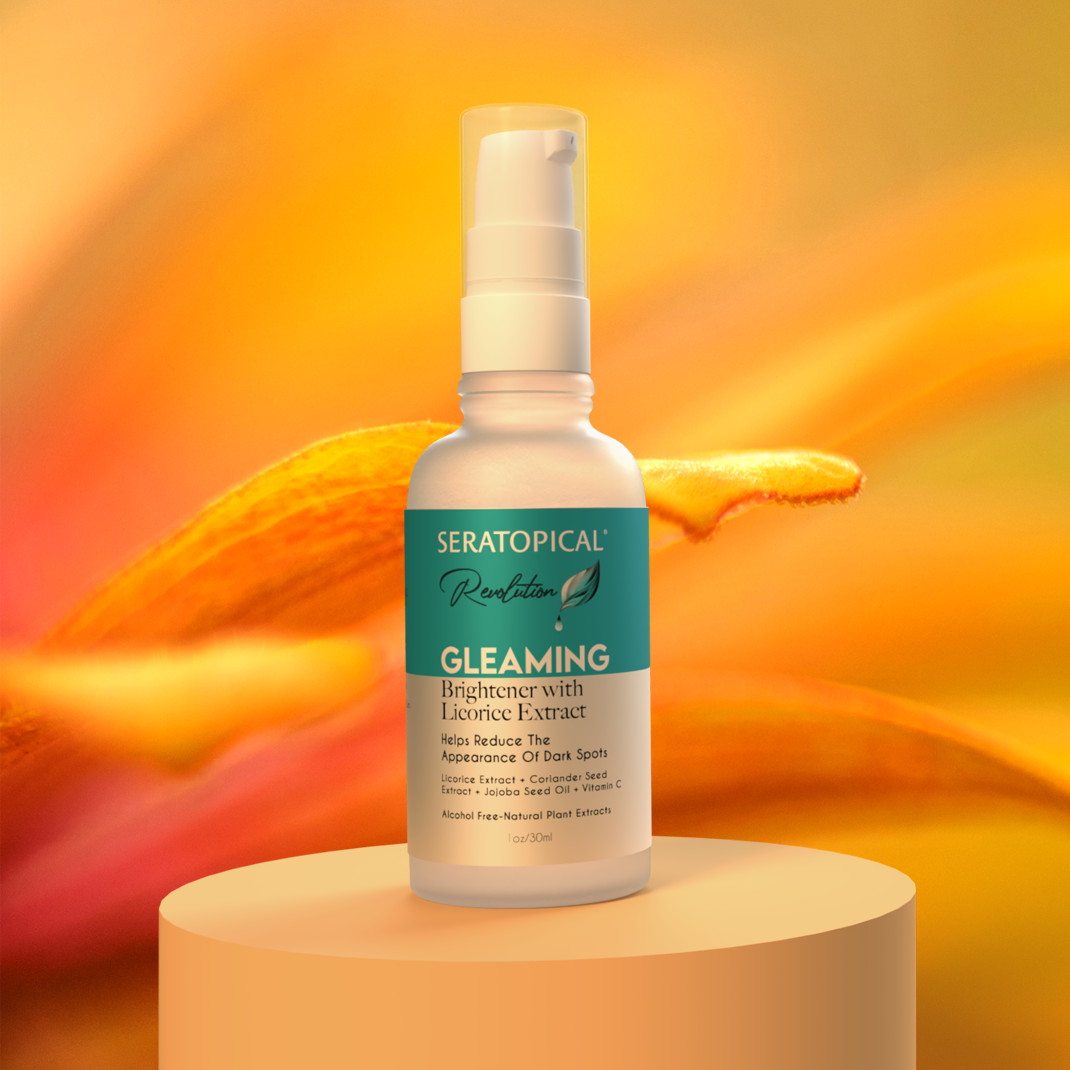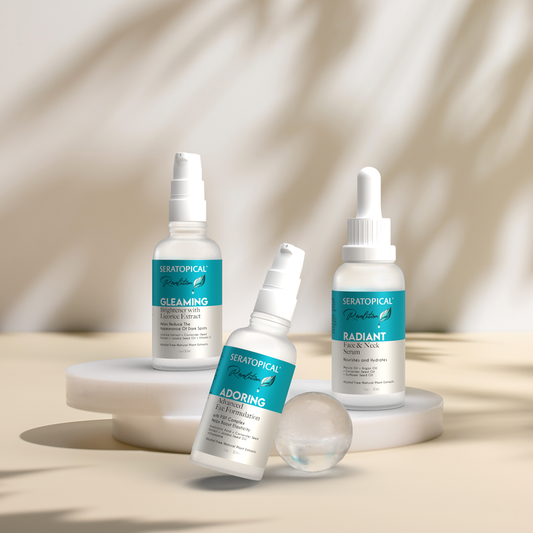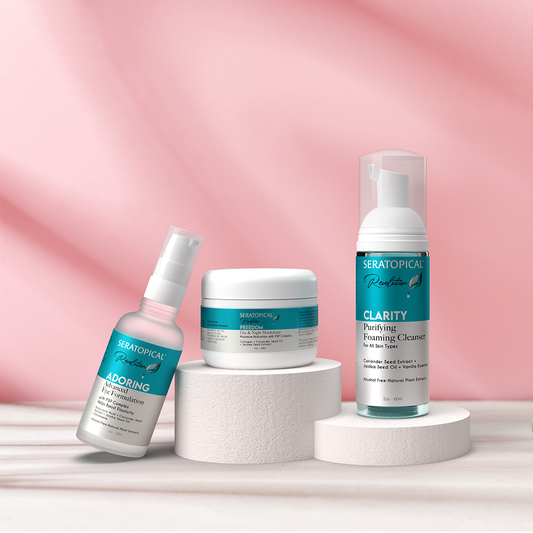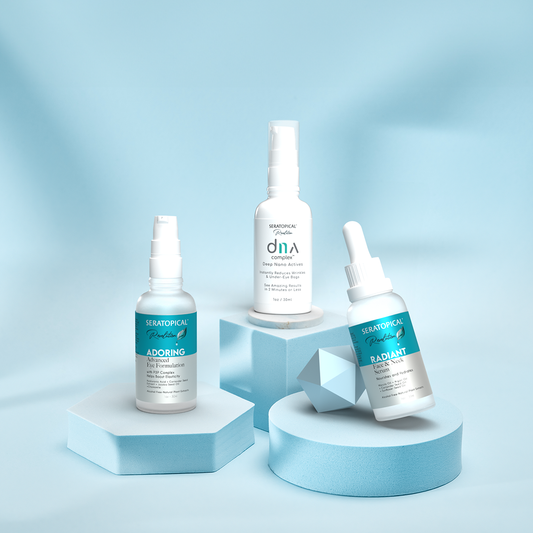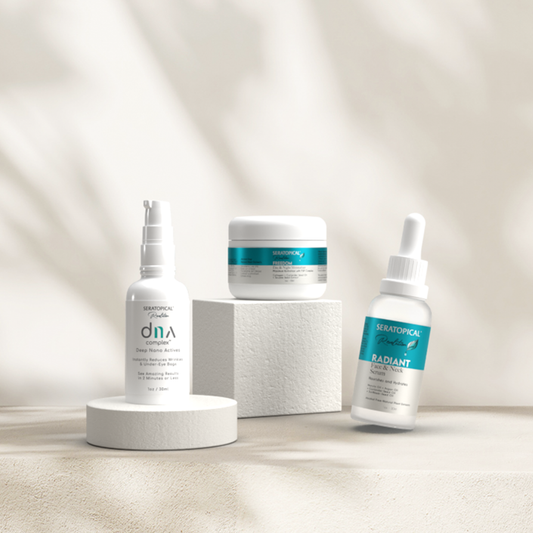The key to finding the most effective formulas for your skin is seeking out products made with ingredients that work well with your skin type. This is the ultimate guide to the ingredients oily skin types should look for (and avoid), as well as the best face serums for oily skin.
Introduction to Oily Skin
Oily skin is characterized by skin that overproduces sebum – AKA your skin’s natural oil. This can affect the entire face, but the nose, chin, and forehead (referred to as the T zone) tend to be the most prone to looking and feeling particularly greasy.
Given the amount of excess sebum, oily skin is also especially prone to enlarged pores and breakouts. This makes it essential to find oily skin products that support the skin without contributing to shine or clogging the pores.
Role of Face Serums
Face serums are designed to address specific skin concerns. They are made with potent concentrations of ingredients that work to target any visible imperfections. Whether you’re looking to fade dark spots, soften fine lines, or hydrate the skin, you’ll be able to find a serum that will help you reach your skin goals.
The key to getting the best results from your serums is finding formulas that are tailored to your skin type. In the case of oily skin, a serum crafted for a different skin type may end up congesting the skin or feeling greasy on the face. By contrast, formulas made to fit the needs of oily skin will treat and nourish the complexion without further contributing to oiliness or clogging the pores.
Ingredients to Look for
As you are looking for a new serum to add to your routine, these are some of the most effective ingredients for oily skin that you’ll want to keep an eye out for:
Vitamin C: This multitasking antioxidant works to fight signs of aging while brightening the skin and protecting against free radical damage. It’s also especially great for oily acne-prone skin susceptible to dark marks from past blemishes, as it helps lighten dark spots for a more even skin tone.
Licorice Root Extract: Similarly to vitamin C, this natural extract improves the look of discoloration, making it the perfect ingredient for oily skin prone to dark spots.
Hyaluronic Acid or Glycerin: Oily skin can get dehydrated – which can actually trigger the skin to produce more oil in response. Lightweight humectants like hyaluronic acid and glycerin draw water to the skin to promote soft and balanced skin.
Lightweight Oils: While it may feel counterintuitive, the right oils can nourish and moisturize the skin without making it feel greasy. Some lightweight oils to look out for include jojoba, argan, sunflower, and grape seed oil.
Ingredients to Avoid
It’s equally as important to avoid certain ingredients that don’t play well with oily skin, including:
Comedogenic Ingredients: Comedogenic ingredients are ingredients that are known to clog pores. There are a lot of different pore-clogging ingredients, but some of the most commonly used ones to look out for include coconut oil, avocado oil, algae extract, cocoa butter, and shea butter.
Alcohol: Many alcohol-based ingredients can dehydrate the skin. Since dehydration can trigger oily skin to make even more sebum, it’s best to avoid alcohol-based formulas.
Parabens and Phtlalates: These additives can not only dry out the skin, but may also cause aggravation. It’s best to stick with clean formulas made without parabens or phthalates.
Product Recommendations
If you’re looking to brighten the complexion while promoting youthful skin, try the Gleaming Brightener. Packed with radiance-boosting ingredients like vitamin C and licorice root extract, it’s designed to help diminish the look of dark spots for a more even skin tone. It simultaneously helps hydrate and promote collagen and elastin production for the ultimate anti-aging benefits.
Curious about trying an oil-based serum in your routine? The Radiant Face & Neck Serum is perfect for oily skin. Made with lightweight oils, the non-greasy formula helps soften the look of fine lines and wrinkles while nourishing and hydrating the skin.
Both of these serums are clean and made without alcohol, parabens, or phthalates. This means you can feel safe and comfortable using them in your routine.
Application Tips
To wrap things up, here are a couple tips for making the most out of your serums:
Be Consistent: Using your serums consistently is crucial for achieving results that you can see and feel. Serums are often suitable for daily use, but refer to the instructions label for the best usage.
Pair with a Moisturizer: Even oily skin needs a moisturizer, as it will support barrier health while adding moisture to the skin. For the best results, pair your serums with a lightweight moisturizer that is suitable for oily skin.
The serums you choose can make or break your routine. By choosing the right formulas for your oily skin (and using them consistently), you’ll be able to efficiently and effectively treat and nourish your skin for visible results.



